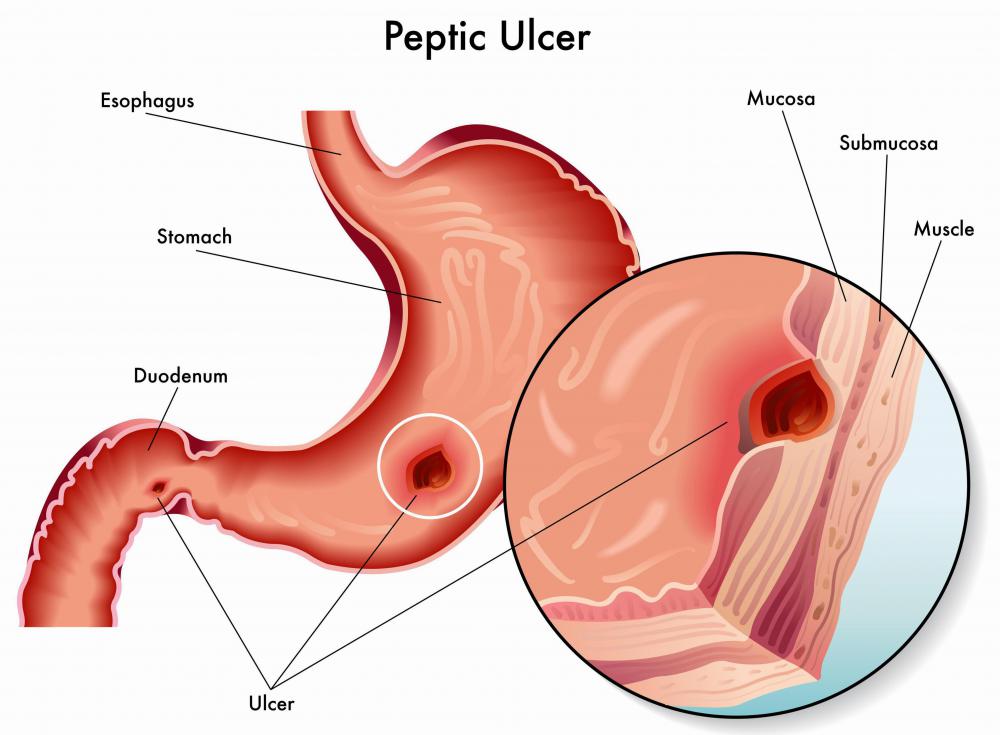At WiseGEEK, we're committed to delivering accurate, trustworthy information. Our expert-authored content is rigorously fact-checked and sourced from credible authorities. Discover how we uphold the highest standards in providing you with reliable knowledge.
What Factors Affect Gaviscon® Dosage?
Gaviscon® is a medication used to treat gastroesophageal reflux (GERD), commonly referred to as heartburn. A number of factors may affect the Gaviscon® dosage, such as severity of the condition and which form of the preparation is used. Gaviscon® is available in different forms, such as chewable tablets and suspension or liquid forms, and they all contain sodium alginate with a combination of other antacids, such as sodium bicarbonate, calcium carbonate, magnesium trisilicate and aluminum hydroxide. In most countries it is available as an over-the-counter product.
GERD or heartburn, occurs when stomach acid is pushed upwards into the esophagus, or food pipe. This causes pain, discomfort and sometimes nausea and regurgitation. It may be due to numerous causes including hiatus hernia, some medications and pregnancy but often has no particular discernible cause. GERD is often more severe after eating and when lying down and may be exacerbated by certain food types such as chili.

The Gaviscon® dosage will be established mainly by the severity of the GERD, and when it occurs. The medication works by acting as a barrier between the stomach and the food pipe. The sodium alginate, which is extracted from seaweed, reacts in combination with the other ingredients in Gaviscon®, to form a gel "raft" on top of the contents of the stomach, preventing them from going back up the foodpipe. This "raft" is also alkaline in nature which helps to neutralize the acids in the stomach. Gaviscon® is not absorbed into the bloodstream but rather acts as a physical barrier.

The severity and symptoms of GERD may differ from patient to patient and some may only need to take a Gaviscon® dosage on an "as needed" basis, after a specific meal, whereas others may need to take a regular Gaviscon® dosage. The timing of the Gaviscon® dosage is important, as it may interact with other medications the person is taking. Before starting treatment, any other medications, including prescription, homeopathic, over-the-counter and complementary medications should be discussed with a doctor or pharmacist.

Should the GERD not respond to lifestyle changes and the use of a product such as Gaviscon®, medical attention should be sought. If GERD is left untreated for a prolonged period it may result in more severe conditions such as damage to the esophageal lining and peptic or gastric ulcers. Gaviscon® is used as symptomatic treatment and, in more severe cases of GERD, other classes of drugs may be necessary.
AS FEATURED ON:
AS FEATURED ON:














Discuss this Article
Post your comments